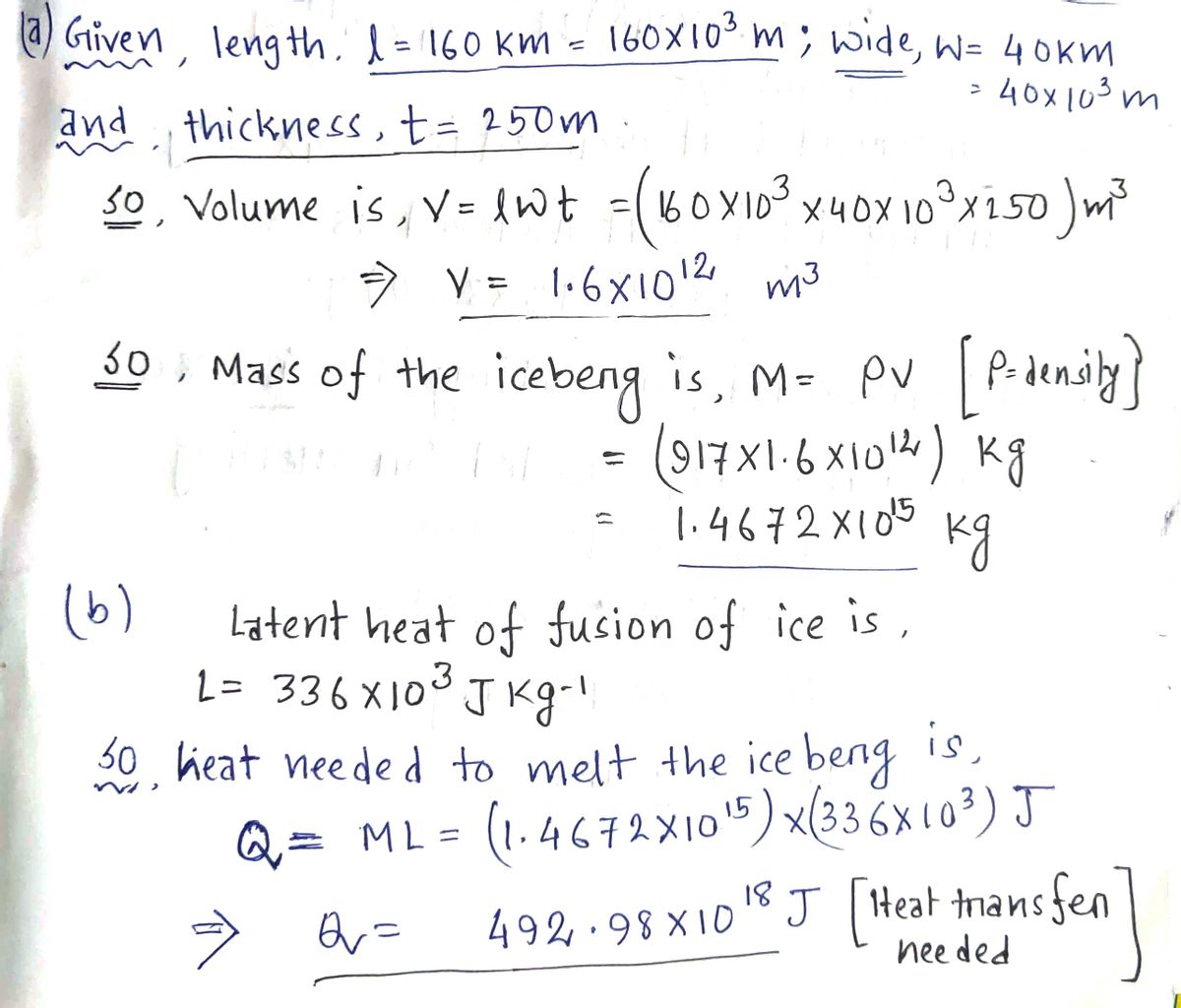In 1986, a gargantuan iceberg broke away from the Ross Ice Shelf in Antarctica. It was approximately a rectangle 160 km long, 40.0 km wide, and 250 m thick. (a) What is the mass of this iceberg, given that the density of ice is 917 kg/m? (b) How much heat transfer (in joules) is needed to melt it? (c) How many years would it take sunlight alone to melt ice this thick, if the ice absorbs an average of 100 W/m2, 12.00 h per day?
In 1986, a gargantuan iceberg broke away from the Ross Ice Shelf in Antarctica. It was approximately a rectangle 160 km long, 40.0 km wide, and 250 m thick. (a) What is the mass of this iceberg, given that the density of ice is 917 kg/m? (b) How much heat transfer (in joules) is needed to melt it? (c) How many years would it take sunlight alone to melt ice this thick, if the ice absorbs an average of 100 W/m2, 12.00 h per day?
Related questions
Question
100%

Transcribed Image Text:18. In 1986, a gargantuan iceberg broke away from the Ross
Ice Shelf in Antarctica. It was approximately a rectangle
160 km long, 40.0 km wide, and 250 m thick.
(a) What is the mass of this iceberg, given that the
density of ice is 917 kg/m??
(b) How much heat transfer (in joules) is needed to melt
it?
(c) How many years would it take sunlight alone to melt
ice this thick, if the ice absorbs an average of
100 W/m?, 12.00 h per day?
Expert Solution
Step 1

Step by step
Solved in 2 steps with 2 images
